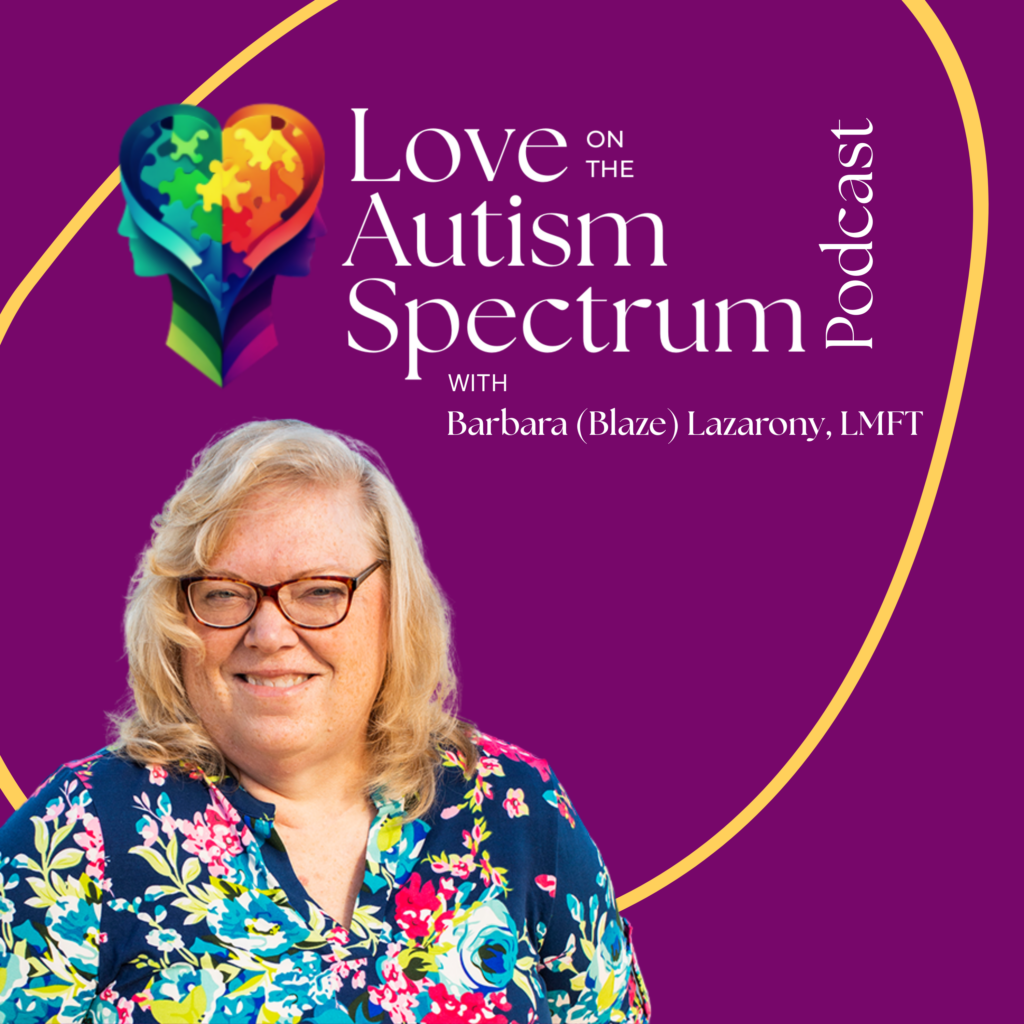Navigating the complexities of a relationship is never easy, but when you think your husband has autism spectrum disorder (ASD), the challenges can be even more significant. How can you best support him, understand his unique perspective, and build a successful neurodiverse relationship?
In this blog post, we’ll explore the signs of autism, how to adapt your communication style, support sensory needs, navigate routines and special interests, cope with emotional differences, and seek professional help and support. With patience, understanding, and a willingness to embrace differences, you can forge a loving, fulfilling bond with your autistic partner.
Key Takeaways
- Recognize early signs of autism and show patience, understanding, and support to navigate social situations.
- Adapt your communication styles as a spouse or partner of someone with ASD. Use direct language and written communication when possible.
- Embrace differences between partners, set realistic expectations, seek professional help & create a supportive environment for children.
- Understand the importance of ’emotional reciprocity’ in a neurodiverse relationship to better navigate emotional differences.
Recognizing the Signs of a Husband with Autism Spectrum Disorder
The early signs of your partner’s autism issues might include social skills challenges, communication difficulties, and sensory sensitives. These signs are often rooted in neurological differences, affecting social conventions, non-verbal communication, self-awareness, and sensory integration.
Amy Schumer has been the most vocal celebrity about having a husband with autism; we hope she is normalizing the challenges and the rewards of being in this type of relationship.
Understanding these challenges and closely observing your husband’s brain through his habits, triggers, and special interests can help you comprehend his daily struggles and work together toward a strong relationship built on mutual understanding and acceptance.
Putting Yourself First
One of the most important things to remember when in a relationship with someone on the autism spectrum is to prioritize your well-being. Getting caught up in trying to understand and support your partner can be easy, but taking care of yourself is crucial. Your feelings matter!
This may mean setting boundaries for yourself and communicating your needs clearly with your partner. Taking breaks and finding time for self-care activities can also help you maintain a healthy balance in the relationship.
Remember, your emotional support and understanding are valuable, but it is not your responsibility to “fix” or change your partner. Accepting them for who they are is vital to a strong and healthy relationship.
Social Skills
Social conventions can be particularly challenging for individuals with autism spectrum disorder. They may struggle with interpreting social cues, understanding social norms, and engaging in typical social interactions. This can lead to feelings of isolation, both for your autistic husband and for you, as you may feel disconnected from him in social situations.
Remember, your husband’s difficulties with social skills do not indicate his feelings towards you or others. These difficulties stem from the neurological differences associated with autism spectrum disorder. Acknowledging these challenges and exhibiting patience, understanding, and support can assist your husband in navigating social situations more effectively and forging stronger connections with others.
Communication Challenges
Communication challenges are common in autistic individuals, with many experiencing difficulty in the following areas:
- Interpreting non-verbal communication
- Initiating verbal communication
- Comprehending social cues and emotions
- Understanding body language, facial expressions, and tone of voice
- Staying on topic and sustaining a conversation
Emotional reciprocity can also be a significant challenge in communication, making it difficult to gauge and respond to emotional expressions.
Establishing clear and direct spoken and written communication may help address these challenges. It is essential to be patient, understanding, and supportive when communicating with your autistic husband, as he may need extra time to process information and respond. Know that your spouse’s inability to communicate neurotically does not mean they do not care or love you. It is simply a challenge that they are constantly working through.
Sensory Issues
Individuals on the autism spectrum can be prone to overstimulation from sensory inputs, making them sensitive to certain sounds, lights, textures, or smells. Sensory integration challenges can also cause them to be under-responsive, unresponsive, or uniquely respond to other sensory information or input. These sensory issues can impact your husband’s daily life and your relationship, making it essential to address and accommodate his sensory needs and preferences.
Creating a comfortable environment tailored to your husband’s sensory preferences can help minimize sensory overload and make your home a haven for both of you. This may involve:
- Lowering noise and light levels
- Providing a quiet area for him to retreat to
- Maintaining a consistent routine helps him feel more secure and comfortable.
Adapting Communication for an Autistic Spouse
Adapting your communication style to suit your autistic spouse, as opposed to a neurotypical partner, is key to building a strong, understanding, and supportive relationship. This involves using clear and direct language, considering written communication as an alternative or supplement to verbal communication, and understanding nonverbal cues.
These adaptations can help bridge the communication gap, cultivate a more harmonious partnership, and serve as a coping mechanism.
Clear and Direct Language
When communicating with an autistic husband, clear and direct language is vital to ensure adequate comprehensionimprovingtial misunderstandings. Autistic individuals may have difficulty interpreting social cues, nuances, sarcasm, and slang, so using clear and direct language is beneficial in straightforwardly expressing information.
Providing structured and clear conversations enables your husband to participate and respond more actively, leading to improved communication in your relationship.
Written Communication
For some autistic individuals, written communication might be a more effective and accessible form of communication. It offers clarity and allows for the explicit communication of needs, emotions, and facts. Since autistic individuals may have difficulty with verbal communication or interpreting nonverbal signals, written communication can be a valuable tool in conveying messages and maintaining comprehension in a relationship.
You could consider using written communication alongside verbal communication or as an alternative if verbal communication becomes challenging. Remember, one person’s perspective may not always align with the other, so using written communication can help bridge potential misunderstandings.
Understanding Nonverbal Cues
Paying attention to nonverbal cues, such as facial expressions, gestures, light touch, and vocal intonation, is vital when communicating with your autistic husband. These cues can transmit significant information and emotions that may not be articulated verbally. Understanding and being attentive to these cues can enhance communication, create trust, and cultivate a stronger connection with your autistic husband.
Keep in mind that your husband may struggle to interpret nonverbal cues. Thus, patience and understanding are vital in fostering effective communication. I encourage you to try an experiment in perspective taking:
Imagine yourself in your husband’s shoes—how would you communicate without using words? This exercise can help you bridge potential misunderstandings and increase empathy for your husband’s communication challenges.
Some familiar nonverbal cues to be aware of when communicating with an autistic individual include eye contact, body language, and tone of voice. For instance, direct eye contact may be extremely difficult or overwhelming for some autistic individuals so that they may avoid it altogether. However, this does not mean they are not paying attention or engaging in conversation. Similarly, their body language may not always match their emotions or thoughts, as they may have difficulty controlling their movements or expressions.
Supporting Sensory Needs and Preferences
Meeting your husband’s sensory needs and preferences, especially during sensory overload, is vital to fostering a robust and understanding relationship. Knowing his sensory sensitivities and creating a conducive environment can help your autistic spouse feel more comfortable and secure in your relationship.
Family members and friends may have different ways of showing affection or communicating, but for an autistic individual, these actions can be overwhelming or uncomfortable. It is essential to understand your spouse’s sensory preferences and communicate with them about what makes them feel comfortable and loved.
Creating a Comfortable Environment
Creating a comfortable environment for your autistic husband might entail considering his sensory preferences, such as reducing noise and light levels, designating a quiet retreat area, and maintaining a consistent routine. This helps minimize sensory overload and fosters a sense of security and comfort for your husband.
These steps can transform your home into a safe haven for your husband or wife, ensuring his well-being and fostering a harmonious relationship.
Respecting Personal Space
Respecting your autistic spouse’s personal space is crucial in fostering a strong and understanding relationship. Allowing your husband time and space to process his emotions and not pressuring him to participate in activities he is uncomfortable with shows respect for his boundaries and supports his well-being.
By being mindful of your husband’s needs and accommodating his personal space, you can create a more harmonious and supportive partnership. Successful relationships require mutual respect and understanding, and this is especially true when one partner has autism.
We are born in relationship, we are wounded in relationship, and we can be healed in relationship.
–Harville Hendix
Navigating Routines and Special Interests
Comprehending the significance of routines and special interests for your autistic husband is crucial in fostering a strong and understanding relationship. Routines can help your husband manage anxiety and feel more secure in his daily life, while special interests can provide him with enjoyment and fulfillment. Effective time management is essential in balancing these interests, ensuring that daily routines and special interests are accommodated without overwhelming either partner.
Acknowledging and accommodating these aspects of your husband’s life allows you to work together towards a balanced and harmonious partnership. A neurodiverse marriage requires both partners to communicate, compromise, and empathize with each other’s needs.
Importance of Routines
Routines provide structure and predictability for an autistic spouse, fostering greater security and comfort. Establishing a consistent daily routine, such as setting regular meal times, providing a consistent bedtime, and engaging in planned activities, can help your autistic husband feel more secure and in control of his environment.
However, it is crucial to understand that the importance of routines for your autistic husband may also impact your own life and the relationship. The neurotypical spouse may experience a sense of restriction and the feeling that their needs are not considered. By understanding the significance of routines for your autistic husband and finding ways to compromise and adapt, you can create a more balanced and harmonious relationship.
Balancing Special Interests
Special interests have a significant role in the lives of many autistic individuals, offering them a sense of enjoyment and fulfillment. However, it is essential to balance your husband’s time management between unique interests and other aspects of life, such as socializing, exercise, and relaxation. Allocating time for his special interests while ensuring he has time for other activities can help create a more balanced and fulfilling life for both of you.
If your husband’s special interest begins interfering with other aspects of life, it is crucial to address the issue and find a mutually beneficial solution. This may involve:
- Setting boundaries and allocating specific times for the pursuit of special interests
- Ensuring that other aspects of life are not neglected
- Maintaining open communication and working together
By doing so, you can create a balanced and harmonious relationship that supports both your husband’s unique interests and the needs of your partnership.
Coping with Emotional Differences and Emotional Support
In a neurodiverse relationship, emotional support is crucial as emotional differences may emerge, necessitating their acknowledgment and the development of coping strategies. A lack of emotional reciprocity and difficulty expressing feelings are common emotional differences in autistic individuals, which can impact the relationship and create feelings of disconnect and resentment.
Understanding these emotional differences and working together can help you navigate these challenges and cultivate a more compassionate and empathetic relationship.
Lack of Emotional Reciprocity
Lack of emotional reciprocity is a common challenge for autistic individuals, who may have difficulty conveying that they understand the needs of others. This can lead to feelings of disconnection and resentment for the neurotypical spouse, who may feel like their emotional needs are not being met.
It’s essential to recognize that this lack of emotional reciprocity does not reflect your husband’s feelings towards you or others but rather a result of the neurological differences that come with autism spectrum disorder.
By understanding this, you may find ways to communicate more effectively, work together to bridge the emotional gap, and foster a stronger, more understanding relationship.
Difficulty Expressing Feelings
Autistic people, including autistic women and any autistic person, may have difficulty expressing their feelings and emotions due to various factors, including neurological differences and the challenges associated with verbal communication. This can make it challenging for them to communicate their feelings effectively, leading to misunderstandings or disconnect in the relationship, especially when interacting with neurotypical or ‘allistic’ people.
It’s essential to be patient and understanding when your autistic husband struggles to express his feelings and to find ways to support him; this would be an excellent time to help him build his self-esteem. Studies show that low self-esteem is common among autistic people, especially due to societal stigma and a lack of understanding. By providing a safe and non-judgmental space for your husband to express himself, you can help him feel more confident and valued.
One way to support an autistic person in expressing their feelings is through alternative communication methods. This could include writing or drawing, using visual aids or social stories, or even technology such as text-to-speech devices. These methods allow for a more concrete and tangible means of expressing emotions, which can be helpful for those who struggle with verbal communication.
Additionally, it’s essential to understand that while neurotypical individuals may rely heavily on verbal cues to understand someone’s emotions, this may not be the case for an autistic individual, who may involve using clear and direct language, written communication, and nonverbal cues to help bridge the communication gap and create a more harmonious and understanding partnership.
Seeking Professional Help and Support
Seeking professional help and joining a support group is important to maintaining a healthy and supportive relationship with an autistic partner. By engaging the expertise of therapists, counselors, and support groups, you can gain valuable insights, strategies, and resources to help you navigate the unique challenges of a neurodiverse relationship.
Through professional support, you can foster a strong, understanding, and fulfilling partnership with your autistic spouse.
Therapists and Counselors
Experienced therapists and counselors skilled in working with neurodiverse couples can provide valuable guidance to help you navigate your relationship’s challenges. They can offer tailored strategies and techniques to help you better understand and communicate with your autistic spouse and address any emotional differences or challenges that may arise in your relationship. They don’t just utilize the theory of therapy or coaching; they teach you real-world practical tools so that you can better understand your husband with autism.
By seeking the help of professionals who are neurodiverse themselves, you can gain a deeper understanding of your partner’s unique perspective and work together to create a solid and supportive partnership. This may make your partner feel more comfortable and open to communication.
Support Groups and Online Forums
Support groups and online forums, such as our very own support group, provide invaluable resources and a sense of community for those in relationships with autistic individuals. Connecting with others who are going through similar experiences allows you to share advice, gain new perspectives, and find other support elsewhere in your journey.
Additionally, these platforms can provide access to valuable information, resources, and strategies for coping with the unique challenges that may arise in a relationship with an autistic partner. By seeking support and engaging in open dialogue with others in similar situations as your partner, you can:
- Gain new insights
- Create a network of understanding and support
- Find coping strategies
- Share experiences and advice
This can be highly beneficial for both you and your autistic spouse.
Parenting with a Husband with Autism
Parenting with an autistic partner presents unique challenges that necessitate understanding, patience, and cooperation. By working together and addressing the unique aspects of parenthood that come with autism, you can create a supportive and nurturing environment for your children while maintaining a strong and understanding partnership with your autistic spouse.
It is important to remember that autism is a spectrum disorder, and each individual will have different goals and intentions as a parent. Many women who are married to an autistic partner report feeling overwhelmed and unsure of how to support their spouse in parenting. However, with some understanding and effort, you can find coping strategies that work for your family.
One helpful approach is sharing experiences and advice with other couples navigating parenthood with an autistic partner. Online communities and support groups provide a safe space to discuss challenges and successes and offer valuable insights from others who may be further along in their journey.
Additionally, it can be highly beneficial for both you and your autistic spouse to seek out resources specifically tailored towards parenting people with autism. This may include books, workshops, or therapy sessions to build strong communication skills and manage everyday stressors.
Understanding Parenthood
Understanding parenthood’s unique challenges and rewards in a neurodiverse relationship is vital to creating a nurturing and supportive environment for your children. This involves being patient, understanding, and respectful of your autistic partner’s needs and preferences while acknowledging and addressing your own needs as a parent.
Sometimes, one spouse may feel hurt or overwhelmed by the other’s behaviors, but it is important to remember that these actions are not intentional and may stem from their autism. Open and honest communication is vital in navigating challenges, and balancing both partners’ needs, especially as parents, is essential.
Additionally, having a solid support system can be helpful. This could include family members, friends, or support groups for parents of autistic children. Having others who understand your situation and can offer advice and encouragement can make a big difference in managing the ups and downs of parenthood.
Managing Anxiety and Stress
Both autistic and neurotypical parents can commonly face challenges like anxiety and stress, making it vital to devise ways to manage these emotions collectively. By establishing realistic expectations, valuing your differences, and seeking professional assistance and guidance, you can work together to address and alleviate anxiety and stress in your relationship.
This benefits your successful relationships and creates a more stable and nurturing environment for your children.
Building a Strong Partnership: Tips for Success
Building a robust relationship with your spouse on the autism spectrum entails providing emotional support, embracing differences, setting realistic expectations, and collaboratively overcoming challenges. By being open and honest about your individual needs and preferences and being willing to compromise and adapt your communication styles, you can create a strong and understanding partnership that benefits you and your autistic spouse.
Remember that every relationship is unique. With patience, understanding, and support, you can forge a loving and fulfilling bond with your autistic partner.
Embracing Differences
A key to building a solid relationship with your autistic spouse is embracing your differences and appreciating your partner’s unique perspective. Understanding and accepting your partner’s unique needs and preferences, as well as their communication style and sensory sensitivities, can help you create a more harmonious and supportive partnership.
By celebrating your differences and gaining perspective to understand each other’s viewpoints, you can build a solid and fulfilling relationship with your autistic spouse.
Setting Realistic Expectations
Establishing realistic expectations for each other is essential in a neurodiverse relationship and is crucial for sustaining a robust and understanding partnership. This involves:
- Being open and honest about your individual needs and preferences
- Being willing to make compromises
- Adapting your communication styles to support one another better
Setting realistic expectations and working together to address challenges can create a more positive way, harmonious, and successful relationship with your autistic spouse.
Summary
In conclusion, building a solid and understanding relationship with your autistic husband requires patience, empathy, and a willingness to adapt your communication styles and expectations. By recognizing the signs of autism in your husband, adapting your communication style, supporting his sensory needs, navigating routines and special interests, coping with emotional differences, and seeking professional help and support, you can create a loving and fulfilling partnership that embraces the unique qualities of both partners. Remember, every relationship is unique, and with the right approach and attitude, you can forge a solid bond and achieve successful relationships with your autistic partner.
Frequently Asked Questions
What’s it like to have an autistic husband?
Having an autistic husband can be challenging as it can be difficult to understand an autistic person, and they may struggle to express their needs and desires. There may be feelings of disconnection, loneliness, and depression due to the lack of communication and emotional contact.
How do autistic men show love?
Autistic people, including autistic men, often express their love in practical ways, such as tidying up or ironing clothing, rather than through typical expressions of affection.
How do I deal with my husband, who has Asperger’s Syndrome?
Dealing with an autistic partner can be challenging, but by taking a few simple steps, you can ensure that your relationship thrives. First and foremost, remember that your husband has unique needs due to his autism. Respect these needs and talk openly with him about any adjustments he may need to feel comfortable and safe in the marriage. For example, consider this when planning activities together if he is overwhelmed by loud noises or crowds.
Are autistic partners loyal?
Autistic people have demonstrated honesty, reliability, and loyalty, making them ideal partners for long-term relationships. However, communication can be more direct than usual, and they may need space when feeling overstimulated. Overall, autistic partners are loyal.
How can I recognize the signs of being on the autism spectrum?
Observe your husband’s social skills, communication patterns, and sensory issues for potential signs of autism spectrum disorder. Look for habitual behavior and special interests that could help you to recognize the signs.
How can I adapt my communication style to support my autistic spouse better?
To better support your autistic partner, use clear and direct language, consider written communication as an alternative or supplement to verbal communication, and understand nonverbal cues.









